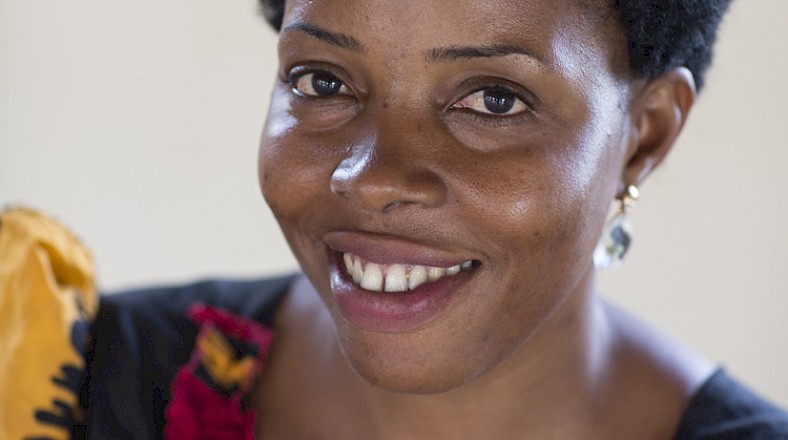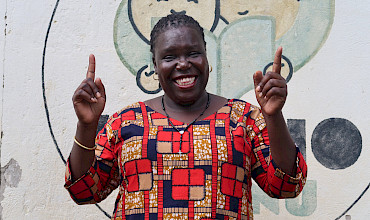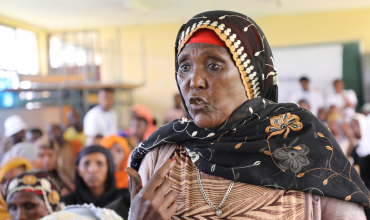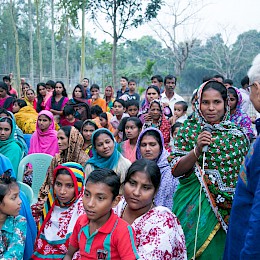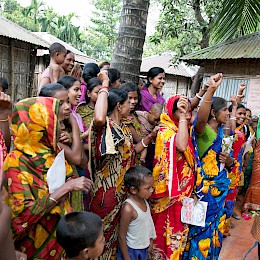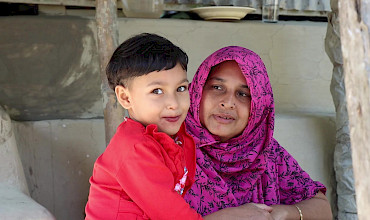
“I was born 32 years ago in the little village Sempya, part of Namayumba epicenter from The Hunger Project. My father was a farmer, he had cows and crops. My mother was a very entrepreneurial housewife. She lent out her wedding gown to earn an income. Today that’s known as bridal service, but back then she was really ahead of everyone. She even bought medicines in the city, to sell them in the village.
Stepping up as a leader
After school I went to college in Kampala. When I got back to Sempya, it really struck me how there was no clean water and that women were giving birth just under the banana trees. This made me step up as a leader. I thought about how I could support my community.
That’s how I am: I jump on board when I see something has to change.
Making change happen
Now I represent Namayumba at local government as the chairperson Work, Water and Building at the district Wakiso, and I take part in the women caucus. I make change happen from the government level, together with my community. I have conversations with my community members, after work or at the school, in a group or one-by-one. And with results: now we have clean water in our village, and no more women are delivering their babies in the banana plantation.”
Supporting local leaders
Like Sarah, more women and men are stepping up as leaders. They are ready to voice their needs, and ready to contribute their own part of the solution. They work together as a community and with their local government. This way, they make change happen.
Right2Grow supports these local leaders by strengthening civil society and bridging the gap between them and their local governments, so they can work together to determine their needs and local solutions. This way, local communities can work towards zero undernutrition and zero people without access to basic WASH.
Back to overview